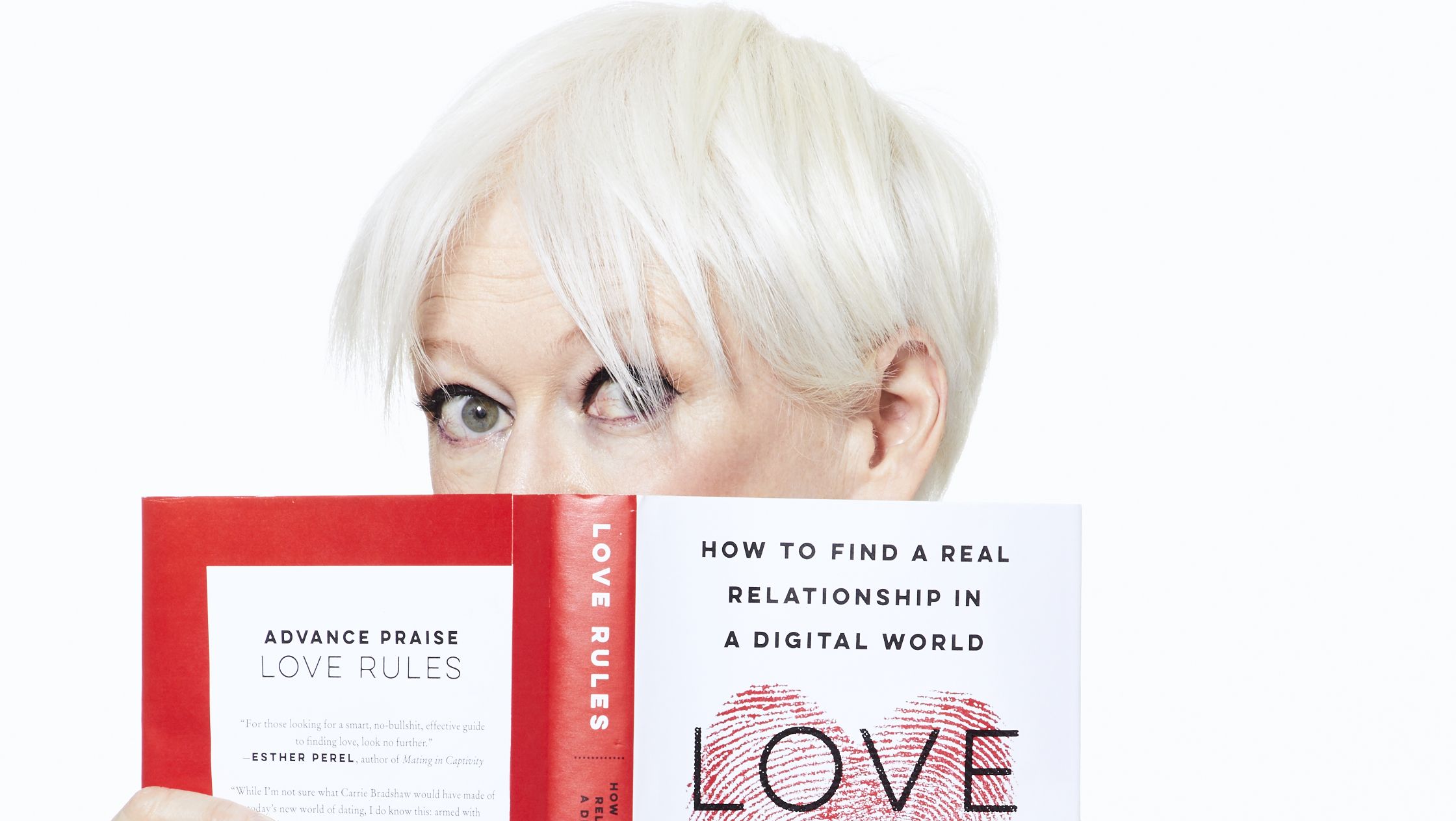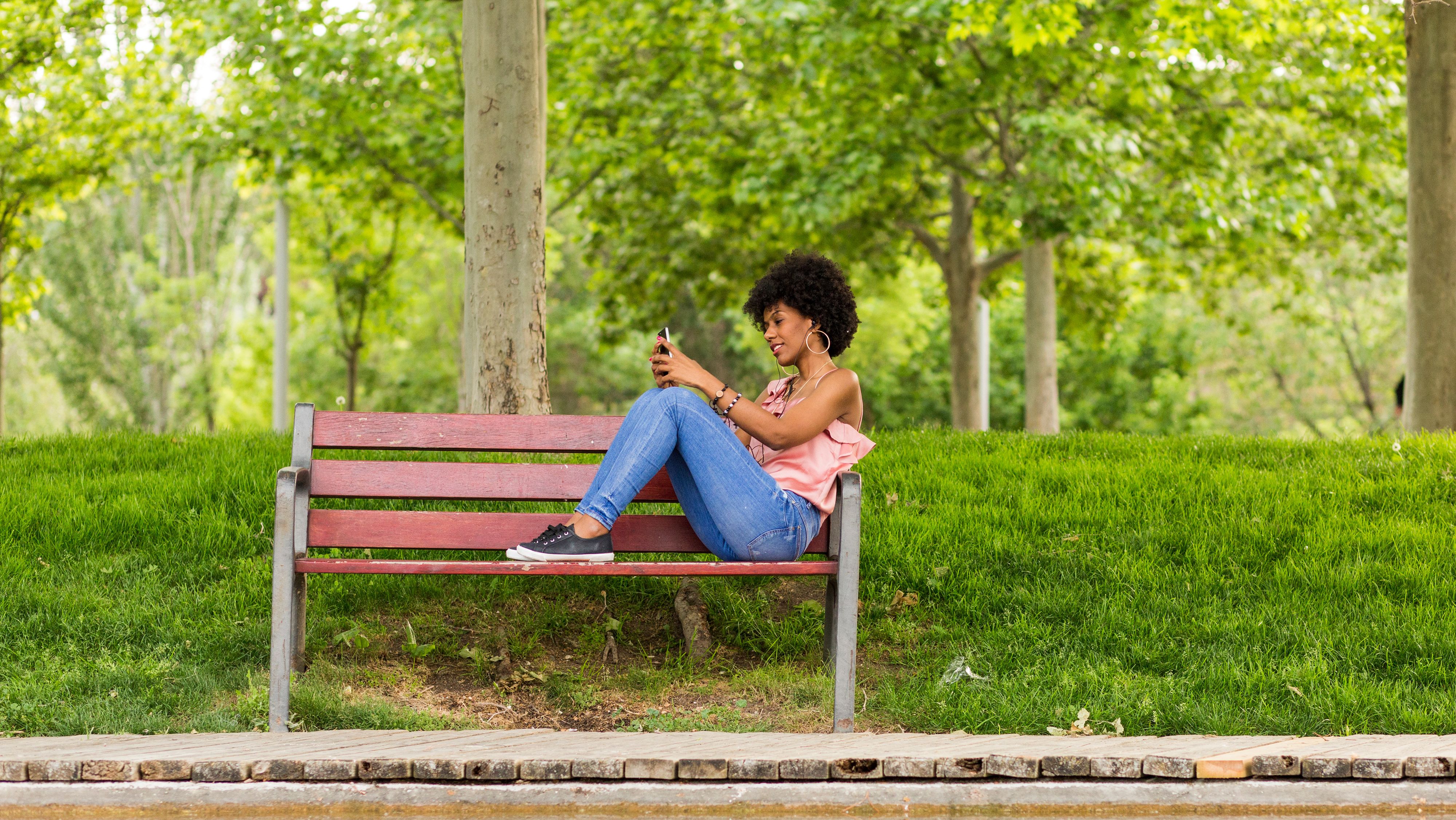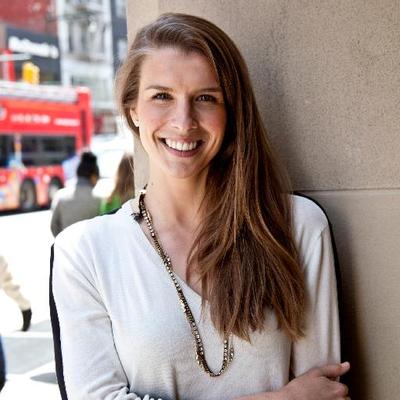Talking the New Rules of Love with 'Love Rules' Author Joanna Coles
Joanna Coles, author of the new book 'Love Rules', talks about sex and dating in the digital age and when to use dating apps versus when to meet people in real life.


Joanna Coles, married mother of two, who has never used an app to try to find a date herself, knows a thing or two about love and sex online. She was the editor-in-chief of both Marie Claire and Cosmopolitan, where she gained intimate knowledge of the thrills and horrors of being a 20-something single woman. And she spent the last couple of years researching and writing her new book, Love Rules: How to Find a Real Relationship in a Digital World. Recently, she and I sat down to have a candid conversation (one woman who has worked at both Marie Claire and Cosmopolitan to another) about when to pick up the phone, when to put it down, when to have sex, when not to, and when you might want to start thinking about joining an AmDram troupe.
Marie Claire: You call Love Rules “a diet book for dating” and you talk about “junk love” as being similar to “junk food.” We all know what junk food is—cookies, chips, cake. But what would you consider to be junk love?
Jonna Coles: Junk love are relationships in which you know you’re not getting the emotional nutrition that you need. You’re probably wasting emotional calories on people who aren’t giving you enough back. I think most people know when they’re in a toxic relationship—it requires an enormous amount of effort to keep it going and you don’t get what you want from it.
MC: Something you point out about this new digital age is that we spend so much time comparing ourselves to other people and not thinking about what would really make us happy. What if, though, you're single and your feeds are blowing up with friends getting married and having babies, and you really, truly do think that that would make you happy?
JC: It is extremely frustrating if you are in your 20s and you want to embark on having a family, and you're struggling to meet people. And the solution would seem to be this amazing arrival of all these dating apps, which promise you connections with all sorts of people that you might not have in your daily life. You might work in an office like we do, which is primarily women, so there are no prospects there. Or you might have very limited free time. A dating app offers you more options.
What offers you the most options is having the biggest life you possibly can. So you think of the enormous fun of being on a sports team. You think of the hilarity of being involved in amateur dramatics and joining a theater group, right? What’s fun is the teamwork and doing something with your talents. These real-life relationships lead to meeting families, meeting friends. I worry that people spend so much time on their devices that they become voyeurs and spectators of other people’s lives and they’re not participating in their own. And that is a shame.
MC: We tell women to take a night off for themselves, indulge in self-care, but so often that means sitting on the couch, scrolling through Instagram.
Get exclusive access to fashion and beauty trends, hot-off-the-press celebrity news, and more.
JC: At the end of that evening you don’t feel better about yourself. You feel listless and disconnected from people. People are isolated with their devices. They in theory connect you, but actually what really connects you is experiencing things with people. I think an evening in on your own, thinking about yourself is depressing. I mean if you’re tired, go to bed early. Sleep is really important for you; I’m all for that.
DM: In the book you ask women to take a hard look at themselves, journal, accept responsibility for their past patterns.
JC: This is about self-knowledge and being honest about what you feel. We talk endlessly about the importance of data and data analytics. Well why not collect the data on your own behavior? Give yourself six months when you write every other night or three times a week about what you're feeling: When do you feel happiest? When do you feel most miserable? Start tracking it and look for patterns. If you go on a date and it goes well, do you feel the urgency to go back with him? Do you have to have sex with him that night? If you do, fair enough, but at least know that and then track how you feel after. Do you feel fantastic afterwards? Or do you feel like, ugh I wish I'd waited?
DM: On the flip side of that, we're in a cultural moment that says, “You’re perfect exactly the way you are!” Self-improvement or self-help can be seen as blame-y. How do we reconcile these two things: taking responsibility for past patterns and self-acceptance?
JC: You have to ask yourself, what would it be like to date you? How do you actually come across? If you like the answers and you’re still convinced it’s everybody else’s fault and not yours, well, that’s your point of view. But I think that pretty much everybody can do with working on themselves a little bit. The key thing is to be honest with yourself—hard, since most people have spent years hiding from themselves.
MC: There was a piece of advice I really loved (as someone who likes to talk on the phone, but I know most people don’t): Before going on a date with someone from a dating app, call him. What’s your take on millennials’ and gen z’s aversion to phone calls, and how can they get past that?
JC: People avoid the telephone because it’s easier to text. Calls can be awkward—you interrupt each other, you can’t quite hear someone. But the advantage is you get to hear someone else’s voice. You find out whether or not you can have a fluid conversation or if it’s stilted and peculiar. You can tell if someone is smart, if they’re dozy. Whether or not they’re a show-off. It’s important to know those things before you go and meet someone in the flesh because ultimately your time is at stake here.
The idea that you can have a relationship with someone online, and that this the equivalent of having a relationship with someone in the flesh, it’s just not true. I worry that women and men waste an inordinate amount of time having flirty, fun text exchanges with strangers—200, 300, 800, 2,000 texts before committing to meet them. It’s actually not that difficult to communicate with great speed and wit online. It’s much harder to do it in the flesh.
MC: You've said there are actually four people on that date—you've both put forward this internet persona, but then you meet in person and you’re who you actually are, and you have to deal with the gaps between those people.
JC: When you meet someone, all five senses are in play. There’s chemistry, there’s pheromones, eye contact, physical contact. You get none of those signals when you’re online.
MC: I love that you brought up time. Before I met my current partner, I always had a rule that I would give everyone a second date. And you seem to be a proponent of that, as well. But at what point do you say, “I’m giving this person more chances,” versus “I’m cutting my losses because I don’t want to waste my time?”
JC: It depends how you leave the first date and it depends what else you have going on. If you’ve got five other people that you’re looking forward to meeting or you’re simmering two people on the back-burner and this new person isn’t worth simmering, then there’s not necessarily a point in going to the second date.
People go online hunting for “the one” and the pressure on the first date is immense. But the chances of falling in love the minute you meet someone are really slim. Actually how most people meet is they went to school together, they’ve worked together, they’re friends of friends, and you start falling in love with people that you’ve done things with. So the point of getting to the second date is: Do you think that he or she could become a friend and would it be worth including them in your wider social network? That's more useful and more practical than if you think about it in terms of Could he be engagement potential?
MC: I think we’ve all watched The Bachelor for too long and we’re like, if I’m not in love with him by the third time we’ve hung out, then it must not be right.
JC: I was glued to the first season of Married at First Sight, I found it absolutely riveting. You can understand people’s feeling of someone just get me married because the trauma around dating is so intense.
MC: You write about how young women in college are getting drunk specifically so that they can have sex and then forget about it. Why is this happening?
JC: I think women crave intimacy, crave relationships, crave love, as do men. (This isn’t just women.) And I think they think that sex is the price they have to pay.
Listen, it’s fun to go to bed with people, it’s fun to get naked with people. Though I do think that there’s much too much drunk sex going on.
None of this is a problem if you really want to have drunk sex with a stranger. But for the most part, drunk sex with a stranger is not fun. And it’s really not fun to wake up in someone’s bed, uncertain of whether or not you’ve been sexually assaulted. I absolutely am not saying, “you shouldn’t drink.” But it’s not good to drink a lot of alcohol with strangers. And it’s good to see if you can have sex with this person sober.
MC: That’s something we used to hear in discussions with Cosmo readers: “Oh you got to the sober sex phase,” like that was a stage of your relationship that showed a greater level of commitment.
JC: If you meet someone online, a lot of the relationship has sort of been fast-forwarded. So you’ve already gotten to the place where you’re like, oh we find each other attractive. But the only reason you found each other attractive was because you either read a profile or you saw a picture of each other. And then you’re suddenly in this environment where you’re supposed to find each other attractive and you’re supposed to end up having sex that evening. And that’s a very, very speedy, very artificial way to get to know someone. One of my concerns—and you know this from working at Cosmo—is that we heard from a lot of women who weren’t enjoying sex. So they were either having it drunk or…
MC: Or they weren’t communicating about what they wanted with their partner, maybe because they’d only ever talked via text message.
JC: Right. And the more time you spend communicating online, the harder communicating in real life is. You get out of practice of having hard conversations about feelings, which, in theory, actually should be fun conversations.
MC: I remember after the Babe.net story about Aziz Ansari that came out earlier this year, so many people were saying, "Well why didn’t she just leave sooner?" or "Why didn’t she just say 'no?'" I think that that neglects the way that society and pop culture have conditioned women to believe that they owe men sex because they’ve gone a date with him, particularly if they’ve gone back to his apartment.
JC: There's an urgency in the culture we live in, and it’s okay to sometimes slow things down. If the woman in that story had said to him at the end of the dinner, "That was fantastic, I can’t wait to see you again," she could have completely ghosted him or she might have still liked him and she could have gone out with him again. The pressure to go back to people’s apartments after just having dinner with him...women need to know that it’s okay to resist the urgency to go home with someone.
I worry that spending a lot of time online strips people of agency in real life. We are so accustomed to being spectators that we almost no longer feel empowered to step up and participate in our own lives.
RELATED STORY


Danielle McNally is a National Magazine Award–winning journalist. She is the executive editor of Marie Claire, overseeing features across every topic of importance to the MC reader: beauty, fashion, politics, culture, career, women's health, and more. She has previously written for Cosmopolitan, DETAILS, SHAPE, and Food Network Magazine.